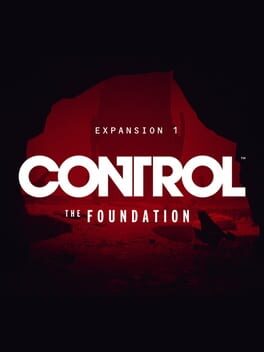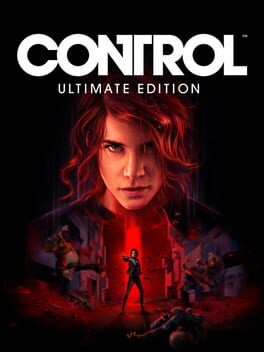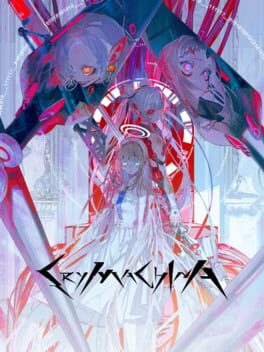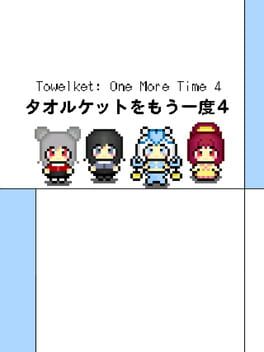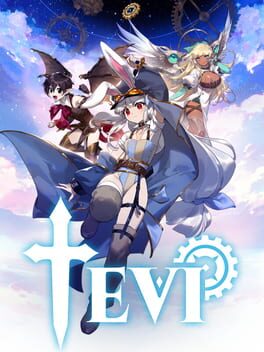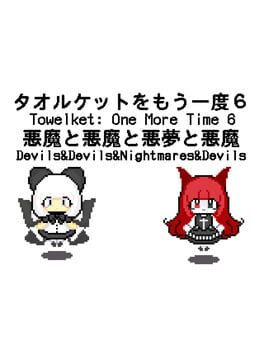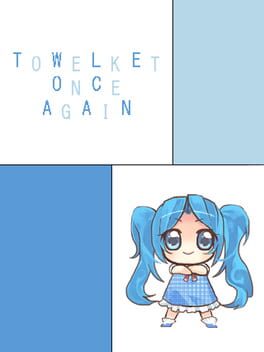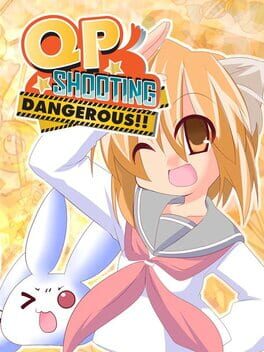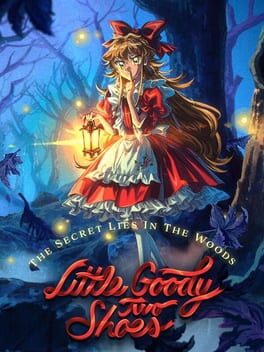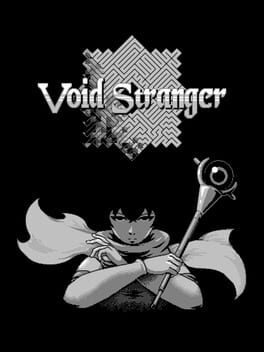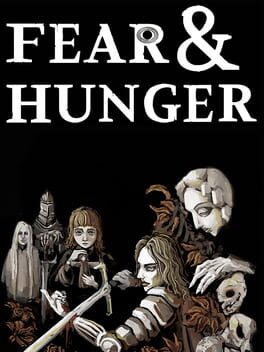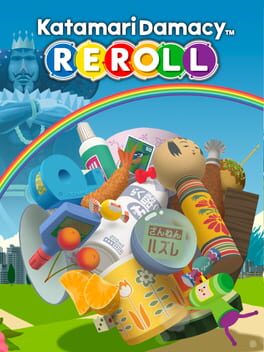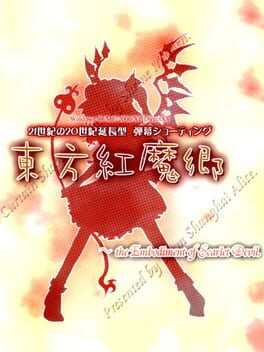Apocynadeae
Pretty basic but fine in representing a more transparent tension between the FBC and the Board while also showing Jesse easing into the role of Director properly; focus on platforming was pretty fun but the abilities at times did feel a little inconsistent. Pretty average overall and feels more like it's establishing the new FBC while base Control showed the death of the old.
I played this back when it was available on PS+, back when actually worthwhile games were put on and the price wasn't as intolerable as it is currently and came out of it confused at its deluge of word sludge, trying to enter my skull while I was growing continuously fed up with its bullshit, not even bothering to rezd the documents or pay much attention to the Hotline or Darling's videos; I didn't even touch the DLCs. It was disingenuous of me, but I still came out enjoying it; just in a confused way. Now, with the proper context coming from Alan Wake, as well as properly tempering my expectations and knowing how to grapple with the map and its style of storytelling, I came out a much bigger fan. Definetly presented in a very larger than thou manner with its complicated array of alternate dimension and paranormal activity viewed and analyzed on the lenses of science, but at its core tells a simple story of "control"; or the idea that we have any control over ourselves, the lives we lead and the paths we take. It's still something I haven't fully grasped to its extremes, but I'm now coming back to it after this replay, ready to head into its expansion stories and see what else this game has to offer.
2023
I've tried to do multiple writeups on this to try and struggle with how to present my feelings on this while seeming sincere; it's easy to make something impersonal, to try and have that boundary between me as the writer and you as the reader. After all, it already exists; by you reading it through a screen, the words here can't be felt by your hands. You can't change them by yourself. They exist in a different plane, needing technology to observe and interact with it. But to make something that surpasses that boundary and allows you to see my heart, ripped from its cage and displayed for the world requires detail and care, but it also requires a deep understanding of what exactly one is writing. I understand Crymachina as it feels as its heart has been displayed as a gourmet meal, with all the dressings that surround it, but I am not sure how I as a writer am able to deliver this care to you effectively.
But that feels appropiate for Fuyuki Hasashi and FuRyu's newest work; a work that thirsts for and deeply requires for you to see the extent of its love and hate. How it desires deeply for unconditional love yet despises the world it has been brought into, one that detests that love in the macro scale and works towards destroying and minimizing it in the grind to become larger than life. To scam and kill in the literal and figurative in how one gets ahead of others in modern society, and Crymachina understands this and disparages it in a molotov cocktail thrown towards them. Crymachina is both that, but also a tour de fource of love, with how each part of the cast contains love inside them and sprouts in different manners, but never truly considers one irredeemable for harboring that love; because to love is to be human, and to be human is to love, and to love is to exist for it.
Even more impressive is the lengths that Crymachina goes to to be an anti-humanist yet progressive piece of art, as what it truly hates is the humanist ideal represented by contemporary society. Why do we disparage and discriminate against others? We may be carnivores and utilize natural resources to survive in the current age, yet discrimination and to see other intelligent beings as lesser because of a biased criteria is in itself an act against true humanity. Where we are born, who we love, what we eat and what we believe in does not matter to our value as humans, and Crymachina truly despises those who participate in that culture, representing them as hideous horrors. To take some words from the producer's interview with NISa, to claim that people are precious because they're human is willfully ignorant; it is the degree of human they are that matter.
Beyond that, Crymachina's all-female cast comes at its benefit when its story and cast are unmistakeably queer not just in the clear representation of lesbian love, but also in how it compares with modern society's discrimination of it. Mikoto and Ami's relationship are the most clear on this with their unmistakeable codependency, but Mikoto's fear of truly defining it because of its stigma: she'd like to be "cool". Ami, in contrast, being head over heels, desperately wishes to be unashamedly married and in love with Mikoto, and constantly fights against a society that doesn't allow her to be legally married. That is her goal as a Real Human after all: to be a proper family. And that sort of dialogue feels reflective of Japan's current struggle to legalize gay marriage, where Crymachina represents this with two great leads, and yells at the world to accept them.
Leben and Enoa are also a more interesting angle of it in the sci-fi sense in contrast to Mikoto and Ami's unsubtle contemporary dialogue; while Mikoto and Ami are unmistakeably considered to be humans, their label seems more shaky in terms of Leben and Enoa; Leben being a "human" with no past and a hatred for it, while Enoa being a machine with love for humans. This dynamic does continue to evolve in ways I'd not expand on because of spoilers, but their romantic relationship is the peak of Crymachina's representation of love and humanity, becoming representations of Crymachina's entire thesis statement: to be human doesn't matter without love. By experiencing love, by struggling to love, do you become a true human.
And in that framework of love does Crymachina shine. I adored Crymachina's story. I love its environmental design, taking Crystar's similar aesthetic with its coloring and transfixing that on larger scaled sci-fi arquitecture. Its music by Sakuzyo (who I found out while playing made one of my favorite albums!) is also a great accompanying piece, with the boss themes sung by Enoa's voice actress being the standouts. Everything about Crymachina is a true labour of love, and for that, I embrace it through my screen, appreciating it and loving it wholeheartedly.
"Please continue to share your life with us."
But that feels appropiate for Fuyuki Hasashi and FuRyu's newest work; a work that thirsts for and deeply requires for you to see the extent of its love and hate. How it desires deeply for unconditional love yet despises the world it has been brought into, one that detests that love in the macro scale and works towards destroying and minimizing it in the grind to become larger than life. To scam and kill in the literal and figurative in how one gets ahead of others in modern society, and Crymachina understands this and disparages it in a molotov cocktail thrown towards them. Crymachina is both that, but also a tour de fource of love, with how each part of the cast contains love inside them and sprouts in different manners, but never truly considers one irredeemable for harboring that love; because to love is to be human, and to be human is to love, and to love is to exist for it.
Even more impressive is the lengths that Crymachina goes to to be an anti-humanist yet progressive piece of art, as what it truly hates is the humanist ideal represented by contemporary society. Why do we disparage and discriminate against others? We may be carnivores and utilize natural resources to survive in the current age, yet discrimination and to see other intelligent beings as lesser because of a biased criteria is in itself an act against true humanity. Where we are born, who we love, what we eat and what we believe in does not matter to our value as humans, and Crymachina truly despises those who participate in that culture, representing them as hideous horrors. To take some words from the producer's interview with NISa, to claim that people are precious because they're human is willfully ignorant; it is the degree of human they are that matter.
Beyond that, Crymachina's all-female cast comes at its benefit when its story and cast are unmistakeably queer not just in the clear representation of lesbian love, but also in how it compares with modern society's discrimination of it. Mikoto and Ami's relationship are the most clear on this with their unmistakeable codependency, but Mikoto's fear of truly defining it because of its stigma: she'd like to be "cool". Ami, in contrast, being head over heels, desperately wishes to be unashamedly married and in love with Mikoto, and constantly fights against a society that doesn't allow her to be legally married. That is her goal as a Real Human after all: to be a proper family. And that sort of dialogue feels reflective of Japan's current struggle to legalize gay marriage, where Crymachina represents this with two great leads, and yells at the world to accept them.
Leben and Enoa are also a more interesting angle of it in the sci-fi sense in contrast to Mikoto and Ami's unsubtle contemporary dialogue; while Mikoto and Ami are unmistakeably considered to be humans, their label seems more shaky in terms of Leben and Enoa; Leben being a "human" with no past and a hatred for it, while Enoa being a machine with love for humans. This dynamic does continue to evolve in ways I'd not expand on because of spoilers, but their romantic relationship is the peak of Crymachina's representation of love and humanity, becoming representations of Crymachina's entire thesis statement: to be human doesn't matter without love. By experiencing love, by struggling to love, do you become a true human.
And in that framework of love does Crymachina shine. I adored Crymachina's story. I love its environmental design, taking Crystar's similar aesthetic with its coloring and transfixing that on larger scaled sci-fi arquitecture. Its music by Sakuzyo (who I found out while playing made one of my favorite albums!) is also a great accompanying piece, with the boss themes sung by Enoa's voice actress being the standouts. Everything about Crymachina is a true labour of love, and for that, I embrace it through my screen, appreciating it and loving it wholeheartedly.
"Please continue to share your life with us."
The ocean used as allegory for birth and death, in a spiral of worlds and lives feels appropiate for a sort of "conclusion" to Towelket; ignore the fact there are still two main games before it all ends properly and an array of spinoffs. As Towelket went from its comedic, Star Wars rebellionesque roots to its serious, gruesome representation of feminist worldviews, it loops back around to its globe-trotting aesthetics here, but also knows that it carries the weight of the other games behind its back.
It's hard to explain why Towelket 4 is so effective; it refines what 6 failed to do with its large cast, with more effective and charismatic writing, while knowing how to use aspects established in Once More and 2. But more than anything does it feel like a game that resonates with the player; placing you in a state of alignment with the world, a mishmash of similar aesthetics and locations as it tries its hardest to connect everything while also being faithful to its slapdash style. More than anything does One More TIme 4's setting feels adequate: an ocean. Where everything feels connected, no matter the distance, through a body of water that all of earth shares. And as it rejects its basic structure by the end, its usual good against evil dynamic while also remaining faithful to it and its tragic endings; it feels as if, while not the best in the series, does One More Time 4 feels like it understands itself the most, and manages to transfer that basic enlightenment to the players.
It's hard to explain why Towelket 4 is so effective; it refines what 6 failed to do with its large cast, with more effective and charismatic writing, while knowing how to use aspects established in Once More and 2. But more than anything does it feel like a game that resonates with the player; placing you in a state of alignment with the world, a mishmash of similar aesthetics and locations as it tries its hardest to connect everything while also being faithful to its slapdash style. More than anything does One More TIme 4's setting feels adequate: an ocean. Where everything feels connected, no matter the distance, through a body of water that all of earth shares. And as it rejects its basic structure by the end, its usual good against evil dynamic while also remaining faithful to it and its tragic endings; it feels as if, while not the best in the series, does One More Time 4 feels like it understands itself the most, and manages to transfer that basic enlightenment to the players.
2023
GemaYue please make DLC and have one of them be Tevi Vena yuri it's insane how much potential they have and yet they barely interact; even outright teasing about the potential. In general the world and cast has a lot of potential that's only really scratched the surface and I really hope there's more coming in here because this is really strong groundwork to bounce off of with a charming cast and some of the best metroidvania combat ever designed, taking Rabi Ribi's and building on top of it. Exploration is definetly a bit on the weaker side because of the much more linear path it takes but I find it to be fun regardless with some great level design; just needed a bit of a tune up for flexibility which Free Roam most likely commits to well enough. Art is pretty great and the designs are all distinct and nice, the graphics and enviormental design are all striking; it's hard to point something in Tevi that falters without a pretty clear silver lining that makes said issue less of a problem; and it really makes what's next for GemaYue to inspire much more hope.
"You ran. But I, who am accepting the sorrow of having lost my own important person, am different from you. I didn't run. I'm now only praying for the person who loved me. ...I am different from you."
It's hard to go in-depth for the Towelket series because by their nature, they are obtuse and hard to approach. Numbered at random, with occasional lack of direction, and its nature as a very underground series of RPGMaker games means there's barely anything on them online in the western sphere compared to other works that have more succesfully breached the culture barrier. But despite that clear lack of connection, there are still people dedicated enough to bring it over, people who put in the hours to read and play, and who feel passionate enough about it to share it with others. And that visceral nature of connection is what surpasses the language barrier for all art, even for the most niche of works and the most hidden of games.
Having seen that my Backloggd list was at 499 games played after I finished QP Shooting - Dangerous!!, another work of the same nature as Towelket, I decided to make my 500th game logged this; I had already gone through 3 and 2, and found a strong appeal for both in different fields, 3 in its more comedic nature and decent cast despite its low text and 2 in its horrifically depressing representation of femininity in the modern age represented in the angle of another alien invasion. This was also the game that had me get into the series in a sense; while I have more interest in a few other titles more than this, it was the one I had heard more positive towards compared to the rest of the series.
And I believe it's quite justified to be as well-loved as it is: Towelket: One More Time is another improvement on what 3 and 2 did, taking their comedic and surrealist natures combined with the dark and horror atmosphere that 2 nails to create an outstanding mixture of comedy and drama. One More Time's synopsis is silly if taken at face value with the use of a "curse of turning corners", but as you progress through the story do you truly start to feel immersed into the story and the role of you as the protagonist: being thrown into millions of years into the future and constantly antagonized, seeing constant reminders of your friends having been brutalized, One More Time is dark. But it's not just dark despite its imbuing misery, but rather it continues to have some levity with the Check mechanic; where the party constantly comments on your environments and the characters grow more attached to each other, these little nuggets of dialogue create some well-desired levity despite everything.
One More Time is also a more uplifting experience than 2 ever was: and while 2's misery and depression is not entirely to be discarded, I do think that Kanao's style here feels like some much-needed optimism compared to the embuing, nihilistic nexus that 2 prided itself on. Not to get into spoilers as this is a game that I reccomend you do play, but there's still a strong sense of acceptance here to the misery that 2 presents in a much more global scale, presented in a much more buddhist angle.
I write all of this, but at the end, to talk of One More Time is unnecessary. The more I speak and explain the less I do justice to this game; because words aren't enough. One More Time is pure communication and yearning distilled into a game that resolves itself in pure acceptance, and it is presented in a manner that only it could justify itself. And perhaps, for what I wished to do for a "500th game logged", little serves the role like One More Time does in the function of games as art, and art as communication.
"Sad people... I'm not the only one.
Happy people... I'm not the only one.
Everyone... is the same as myself.
...hardships and happiness.
I am the same as everyone.
Everyone is the same as me."
It's hard to go in-depth for the Towelket series because by their nature, they are obtuse and hard to approach. Numbered at random, with occasional lack of direction, and its nature as a very underground series of RPGMaker games means there's barely anything on them online in the western sphere compared to other works that have more succesfully breached the culture barrier. But despite that clear lack of connection, there are still people dedicated enough to bring it over, people who put in the hours to read and play, and who feel passionate enough about it to share it with others. And that visceral nature of connection is what surpasses the language barrier for all art, even for the most niche of works and the most hidden of games.
Having seen that my Backloggd list was at 499 games played after I finished QP Shooting - Dangerous!!, another work of the same nature as Towelket, I decided to make my 500th game logged this; I had already gone through 3 and 2, and found a strong appeal for both in different fields, 3 in its more comedic nature and decent cast despite its low text and 2 in its horrifically depressing representation of femininity in the modern age represented in the angle of another alien invasion. This was also the game that had me get into the series in a sense; while I have more interest in a few other titles more than this, it was the one I had heard more positive towards compared to the rest of the series.
And I believe it's quite justified to be as well-loved as it is: Towelket: One More Time is another improvement on what 3 and 2 did, taking their comedic and surrealist natures combined with the dark and horror atmosphere that 2 nails to create an outstanding mixture of comedy and drama. One More Time's synopsis is silly if taken at face value with the use of a "curse of turning corners", but as you progress through the story do you truly start to feel immersed into the story and the role of you as the protagonist: being thrown into millions of years into the future and constantly antagonized, seeing constant reminders of your friends having been brutalized, One More Time is dark. But it's not just dark despite its imbuing misery, but rather it continues to have some levity with the Check mechanic; where the party constantly comments on your environments and the characters grow more attached to each other, these little nuggets of dialogue create some well-desired levity despite everything.
One More Time is also a more uplifting experience than 2 ever was: and while 2's misery and depression is not entirely to be discarded, I do think that Kanao's style here feels like some much-needed optimism compared to the embuing, nihilistic nexus that 2 prided itself on. Not to get into spoilers as this is a game that I reccomend you do play, but there's still a strong sense of acceptance here to the misery that 2 presents in a much more global scale, presented in a much more buddhist angle.
I write all of this, but at the end, to talk of One More Time is unnecessary. The more I speak and explain the less I do justice to this game; because words aren't enough. One More Time is pure communication and yearning distilled into a game that resolves itself in pure acceptance, and it is presented in a manner that only it could justify itself. And perhaps, for what I wished to do for a "500th game logged", little serves the role like One More Time does in the function of games as art, and art as communication.
"Sad people... I'm not the only one.
Happy people... I'm not the only one.
Everyone... is the same as myself.
...hardships and happiness.
I am the same as everyone.
Everyone is the same as me."
2021
2023
I was pretty quick to dismiss Mario Wonder when it was originally announced on July 21, 2023. It screamed all style no substance; the revamped graphics compared to New Super Mario were no doubt some sort of improvement, but I thought it looked somewhat ugly, and the Wonder mechanic especially seemed like a shallow addition, compounded with the talking flower and the very plain level design made it feel as if Wonder, despite aspects of it being promising, would be a disappointment. I didn't really pay attention to the rest of the news cycle other than what I learned from osmosis, but when I heard of a totally legal way to play it early, I decided to give it at least the benefit of the doubt
Two worlds in, I shut off the game. Yep, classic Mario. I thought I saw everything it offered. And after a few minutes, I turned it back on and went back to play it. By the time I left to watch a play, I had left off at World 6 of 7 (sort of 8?), and felt a slight thirst to keep going. It was very small, but a very small part of me was hooked to the game, unable to escape from its appeal.
Super Mario Bros. Wonder is both classic 2D Mario action and its own thing. Taking more cues from Super Mario 3D World than it does from the New Super Mario series, it's able to rejuvenate a dead style with a strong combination of excellent level design, new but familiar aesthetics and a new array of powers. A lot of emphasis must be placed on the level design of Super Mario Bros. Wonder as it is bar none some of the best the franchise has seen, with a wide variety of challenges to be encountered. The absolute large amounts of levels with branching paths and secrets to be found is immense, and the levels have a decent balance of challenge; none feel utterly hard, but they aren't always cake walks. If anything is amazing in this game and must not be taken for granted, it is how this game can cultivate such a strong sense of discovery through short levels, making every run through them interesting. The Wonder flower adds to this, as unlike my first impressions, it isn't a cakewalk to reach these always nor are they boring gimmicks, but rather fundamentally change your play style to bring upon a different challenge that couldn't be done without the game wanting to pull the rug from under your feet. A Wonder flower can change the plane to a Sonic 3D Blast ripoff, making it a top-down perspective, or it can change your character to a ball and implement more momentum-based platforming, or it can create a musical that has you play to the beat of it to succeed.
What Wonder does best, as you've probably assumed, is variety. The game is filled with ideas, making every level unique in some way with the unifying tie being the world's motif. World 5 comes to mind as the prime example; where the last few levels are a long stretch in-story of an old temple, and you're required to explore the level properly to find the Wonder flower, or else when you reach the "end" without it, it'll just end early with a "Course Cleared...?". Dialogue with the NPCs will also point out that this search is necessary, and you can't just bumrush your way through the level. Finding the Flower is never hard, but it did trip me up once, and more than anything I respect the dedication there is to making each World its distinct scenario, rather than all of them having Bowser Jr. appear and fuck things up. World 3 is another example, where rather than finding Bowser Jr. and kicking his ass, the leader of that area presents you with various trials to see if you are worthy of the Royal Seed as some sort of tradition. It makes the end goal feel less repetitive as each world is unique in its formation. World 4 had me scratching my head still, where most of the difficulty isn't in the stages, but actually finding the stages in the World Map. I still had a good number missing until postgame and had to ask for help to figure out the location of some.
The World Map in general is interesting as Super Mario Bros. Wonder does not attempt to have a linear structure after the third World, allowing the player to go through World 4-6 in any order, before ending with "World 7", which is more so a hub that connects the other worlds. Alongside that, Wonder introduces "breaks", which are more bite-sized levels that focus on a different style of gameplay other than pure platforming. There's a pretty large variety, but I don't find it too important to point all of them out since they're usually just about a minute or two long, with the exception of the Search breaks, which jesus christ yeah I was only able to do one the others I saw I could not fucking wrap my head around them. Regardless, they're nice additions that give you an extra Seed, and the Badge stages also give you a new badge if you beat them.
Speaking of badges, this is when we veer off from pure praise to more conflicting opinions. The Badge system allows you to equip one badge to vary your options, be it an extra move for traversal, a passive buff like a coin magnet, or one of the Expert badges. I'll be honest and say that for the action badges, I'm more confused on why these are optional equipments instead of proper upgrades to a base arsenal. Your character in this game is barren. Things like the Triple Jump are changed from a basic traversal ability to a badge, and for some like the grappling hook I never used because the level design simply didn't accomodate for it. Some of the passive badges would also be more useful if I didn't use my sole slot for higher speed; if there were more Badge slots than just one, or if you could equip both one action badge and one passive badge I would see this system as something more useful, but as is I felt it a waste because so much possibility for level design is limited by making these movement options optional.
I did think the expert badges to be more of a fun gimmick comparatively, though; I'm only missing one, but all changed the way the game played in a more unique way that makes it more logical that it is an option, and especially one aimed at harder play. I can see myself going back and utilizing the dash, for example. Regardless, the badge system is more of a minor complaint at some missed potential in level design; same goes for the playable characters playing basically the same? As I said, this game takes a bit more from 3D World's controls and style than it does from New, but one thing 3D World had that this didn't is the character variety in control styles. Wonder does have 6 playable characters, and an additional 6 that no one will play, but I do miss the idea behind the characters having more individual styles such as Toad's faster run speed but smaller range in jumps. Maybe it's a bit of wishful thinking to have both the great level design of this and the unique characters of 3D World... but it stuck out to me so I'm mentioning it.
Something else that stuck out to me is the power-up selection. Not counting the Wonder Flower because it's more similar to a Mega Mushroom than anything, there's only four, and only one is a returning one; the Fire Flower. No comments on that, you've played Mario, you know what it does. The other three are the Elephant, the Bubble, and the Drill. I'll be honest I only really liked the Bubble powerup; it goes through walls and you can jump on the bubbles themselves, and they move somewhat slow so lining up jumps with it is doable. It also instantly kills anything the bubble catches, so it's both a great addition to your movement and a great offensive weapon in most situations. The drill is one I would have liked to love, but unfortunately its implementation is a little off. It lets you dig into the ground and the ceiling, as well as being able to hit enemies with your head. It's useful for some stages, but otherwise just doesn't really do much. The Elephant is in theory pretty nice except I hate looking at it. Fuck it. It instills in me a sense of rage I rarely feel. It's also just a little off; it's more of a close range dealer that breaks blocks, but it can also absorb water to rejuvenate some plants, and yeah whatever it works? But I don't like it and I don't like using it.
I also don't like the talking flower. Nintendo strikes back with their my way or the highway mentality because you cannot turn off the flower completely. You can turn off the voice and it somewhat helps but it's still distracting to see text that does nothing but spout Whedonisms. YES I can see that weird shit is happening, I don't need the game to reaffirm that weird shit is happening. It's just an odd addition when the rest of the game is all-in on wanting you to immerse yourself into the Flower Kingdom, seeing the different groups and how you interact with them, to also attract attention to it in an odd, fourth-wall way. They don't give advice or hints. They're entirely there to just tickle your brain if you somehow enjoy the sort of dialogue it spawns.I don't like it. It do not tickle my brain. It does the opposite.
Another small disappointment I have is with the postgame levels in the Special world, only having nine stages and all of them being pretty short and the challenge coming more so from precise application of gimmicks than any strong platforming. I don't mind this approach for the normal levels because part of the appeal is the variety that sprouts from it, but the levels never really felt like a proper challenge because of it. I wish the last stage was longer and harder.
The bosses are fine, there's only really three; Bowser Jr., the ship's, and Bowser himself. Bowser Jr has a pretty set moveset that changes less because of him and more of what the world's general gimmick is. The ship's is more akin to Bowser's fights in Mario 1 where the goal isn't to kill him but to reach the ax. Bowser's fight was a strong and fun spectacle, but not really hard. I wish there were more? Not for every World, I think they all do a good job at variety, but I think there could've been a better way to implement a set piece boss alongside the Wonder flower's effects.
I do think that perhaps Wonder's biggest issue is that it is not a very deep game; not in terms of plot but in terms of gameplay. There's not much avenue for a strong application in gameplay since the game functions much less as something focused on Mario's movement kit and much more on a visual spectacle, pulling the rug off your feet. And Wonder is great for that! But when it also attempts to pose a serious challenge, it starts faltering.
Wonder shows a lot of wonderful spectacle, but stumbles in a few key aspects that still show promise for the evolution of 2D Mario and how it can change and evolve.
Two worlds in, I shut off the game. Yep, classic Mario. I thought I saw everything it offered. And after a few minutes, I turned it back on and went back to play it. By the time I left to watch a play, I had left off at World 6 of 7 (sort of 8?), and felt a slight thirst to keep going. It was very small, but a very small part of me was hooked to the game, unable to escape from its appeal.
Super Mario Bros. Wonder is both classic 2D Mario action and its own thing. Taking more cues from Super Mario 3D World than it does from the New Super Mario series, it's able to rejuvenate a dead style with a strong combination of excellent level design, new but familiar aesthetics and a new array of powers. A lot of emphasis must be placed on the level design of Super Mario Bros. Wonder as it is bar none some of the best the franchise has seen, with a wide variety of challenges to be encountered. The absolute large amounts of levels with branching paths and secrets to be found is immense, and the levels have a decent balance of challenge; none feel utterly hard, but they aren't always cake walks. If anything is amazing in this game and must not be taken for granted, it is how this game can cultivate such a strong sense of discovery through short levels, making every run through them interesting. The Wonder flower adds to this, as unlike my first impressions, it isn't a cakewalk to reach these always nor are they boring gimmicks, but rather fundamentally change your play style to bring upon a different challenge that couldn't be done without the game wanting to pull the rug from under your feet. A Wonder flower can change the plane to a Sonic 3D Blast ripoff, making it a top-down perspective, or it can change your character to a ball and implement more momentum-based platforming, or it can create a musical that has you play to the beat of it to succeed.
What Wonder does best, as you've probably assumed, is variety. The game is filled with ideas, making every level unique in some way with the unifying tie being the world's motif. World 5 comes to mind as the prime example; where the last few levels are a long stretch in-story of an old temple, and you're required to explore the level properly to find the Wonder flower, or else when you reach the "end" without it, it'll just end early with a "Course Cleared...?". Dialogue with the NPCs will also point out that this search is necessary, and you can't just bumrush your way through the level. Finding the Flower is never hard, but it did trip me up once, and more than anything I respect the dedication there is to making each World its distinct scenario, rather than all of them having Bowser Jr. appear and fuck things up. World 3 is another example, where rather than finding Bowser Jr. and kicking his ass, the leader of that area presents you with various trials to see if you are worthy of the Royal Seed as some sort of tradition. It makes the end goal feel less repetitive as each world is unique in its formation. World 4 had me scratching my head still, where most of the difficulty isn't in the stages, but actually finding the stages in the World Map. I still had a good number missing until postgame and had to ask for help to figure out the location of some.
The World Map in general is interesting as Super Mario Bros. Wonder does not attempt to have a linear structure after the third World, allowing the player to go through World 4-6 in any order, before ending with "World 7", which is more so a hub that connects the other worlds. Alongside that, Wonder introduces "breaks", which are more bite-sized levels that focus on a different style of gameplay other than pure platforming. There's a pretty large variety, but I don't find it too important to point all of them out since they're usually just about a minute or two long, with the exception of the Search breaks, which jesus christ yeah I was only able to do one the others I saw I could not fucking wrap my head around them. Regardless, they're nice additions that give you an extra Seed, and the Badge stages also give you a new badge if you beat them.
Speaking of badges, this is when we veer off from pure praise to more conflicting opinions. The Badge system allows you to equip one badge to vary your options, be it an extra move for traversal, a passive buff like a coin magnet, or one of the Expert badges. I'll be honest and say that for the action badges, I'm more confused on why these are optional equipments instead of proper upgrades to a base arsenal. Your character in this game is barren. Things like the Triple Jump are changed from a basic traversal ability to a badge, and for some like the grappling hook I never used because the level design simply didn't accomodate for it. Some of the passive badges would also be more useful if I didn't use my sole slot for higher speed; if there were more Badge slots than just one, or if you could equip both one action badge and one passive badge I would see this system as something more useful, but as is I felt it a waste because so much possibility for level design is limited by making these movement options optional.
I did think the expert badges to be more of a fun gimmick comparatively, though; I'm only missing one, but all changed the way the game played in a more unique way that makes it more logical that it is an option, and especially one aimed at harder play. I can see myself going back and utilizing the dash, for example. Regardless, the badge system is more of a minor complaint at some missed potential in level design; same goes for the playable characters playing basically the same? As I said, this game takes a bit more from 3D World's controls and style than it does from New, but one thing 3D World had that this didn't is the character variety in control styles. Wonder does have 6 playable characters, and an additional 6 that no one will play, but I do miss the idea behind the characters having more individual styles such as Toad's faster run speed but smaller range in jumps. Maybe it's a bit of wishful thinking to have both the great level design of this and the unique characters of 3D World... but it stuck out to me so I'm mentioning it.
Something else that stuck out to me is the power-up selection. Not counting the Wonder Flower because it's more similar to a Mega Mushroom than anything, there's only four, and only one is a returning one; the Fire Flower. No comments on that, you've played Mario, you know what it does. The other three are the Elephant, the Bubble, and the Drill. I'll be honest I only really liked the Bubble powerup; it goes through walls and you can jump on the bubbles themselves, and they move somewhat slow so lining up jumps with it is doable. It also instantly kills anything the bubble catches, so it's both a great addition to your movement and a great offensive weapon in most situations. The drill is one I would have liked to love, but unfortunately its implementation is a little off. It lets you dig into the ground and the ceiling, as well as being able to hit enemies with your head. It's useful for some stages, but otherwise just doesn't really do much. The Elephant is in theory pretty nice except I hate looking at it. Fuck it. It instills in me a sense of rage I rarely feel. It's also just a little off; it's more of a close range dealer that breaks blocks, but it can also absorb water to rejuvenate some plants, and yeah whatever it works? But I don't like it and I don't like using it.
I also don't like the talking flower. Nintendo strikes back with their my way or the highway mentality because you cannot turn off the flower completely. You can turn off the voice and it somewhat helps but it's still distracting to see text that does nothing but spout Whedonisms. YES I can see that weird shit is happening, I don't need the game to reaffirm that weird shit is happening. It's just an odd addition when the rest of the game is all-in on wanting you to immerse yourself into the Flower Kingdom, seeing the different groups and how you interact with them, to also attract attention to it in an odd, fourth-wall way. They don't give advice or hints. They're entirely there to just tickle your brain if you somehow enjoy the sort of dialogue it spawns.I don't like it. It do not tickle my brain. It does the opposite.
Another small disappointment I have is with the postgame levels in the Special world, only having nine stages and all of them being pretty short and the challenge coming more so from precise application of gimmicks than any strong platforming. I don't mind this approach for the normal levels because part of the appeal is the variety that sprouts from it, but the levels never really felt like a proper challenge because of it. I wish the last stage was longer and harder.
The bosses are fine, there's only really three; Bowser Jr., the ship's, and Bowser himself. Bowser Jr has a pretty set moveset that changes less because of him and more of what the world's general gimmick is. The ship's is more akin to Bowser's fights in Mario 1 where the goal isn't to kill him but to reach the ax. Bowser's fight was a strong and fun spectacle, but not really hard. I wish there were more? Not for every World, I think they all do a good job at variety, but I think there could've been a better way to implement a set piece boss alongside the Wonder flower's effects.
I do think that perhaps Wonder's biggest issue is that it is not a very deep game; not in terms of plot but in terms of gameplay. There's not much avenue for a strong application in gameplay since the game functions much less as something focused on Mario's movement kit and much more on a visual spectacle, pulling the rug off your feet. And Wonder is great for that! But when it also attempts to pose a serious challenge, it starts faltering.
Wonder shows a lot of wonderful spectacle, but stumbles in a few key aspects that still show promise for the evolution of 2D Mario and how it can change and evolve.
2018
This review contains spoilers
The God of Fear and Hunger acknowledges your suffering.
The kind of game that's a back and forth of escalating cheating to present suffering in escalation. It messes with you and fucks with you, but at the same time the scars you accumulate build towards a larger scale of knowledge, of opportunities to break through it. The anti-Katamari Damacy; in a sense representing salvation from life in death, rather than affirming life.
I find parts of its philosophy intriguing, representing life as a whole accumulated and compressed in the dungeons of Fear and Hunger. The Pocketcat's speech, saying that one does not feel happiness but joy inbetween eternal suffering. I'm not here to make sweeping statements like this, but more so recognize and acknowledge that Fear & Hunger is suffering, and the game's atmosphere and storytelling of lost souls descending into hell on earth for some sort of meaning to be intriguing.
I did have fun with Fear & Hunger, at its best and at its worst. I enjoyed learning more of the game and feeling rewarded for my knowledge, knowing how to exploit it to the best of my ability, and being presented with a wall to overcome. The script and story found might be kind of nothing; some of the cast is interesting but they're not given much time to shine, but the text matters little to the world presented and the storytelling presented by its pure gameplay.
The kind of game that's a back and forth of escalating cheating to present suffering in escalation. It messes with you and fucks with you, but at the same time the scars you accumulate build towards a larger scale of knowledge, of opportunities to break through it. The anti-Katamari Damacy; in a sense representing salvation from life in death, rather than affirming life.
I find parts of its philosophy intriguing, representing life as a whole accumulated and compressed in the dungeons of Fear and Hunger. The Pocketcat's speech, saying that one does not feel happiness but joy inbetween eternal suffering. I'm not here to make sweeping statements like this, but more so recognize and acknowledge that Fear & Hunger is suffering, and the game's atmosphere and storytelling of lost souls descending into hell on earth for some sort of meaning to be intriguing.
I did have fun with Fear & Hunger, at its best and at its worst. I enjoyed learning more of the game and feeling rewarded for my knowledge, knowing how to exploit it to the best of my ability, and being presented with a wall to overcome. The script and story found might be kind of nothing; some of the cast is interesting but they're not given much time to shine, but the text matters little to the world presented and the storytelling presented by its pure gameplay.
Katamari is life. We are Katamari.
We build ourselves up from the smallest piece of knowledge until the grandest mass of life, of our records in life, as we die memorialized as life in the skies. We are Katamari. We are the true realization of it. When one is asked, "What the fuck is a Katamari", respond with "What is life?" For Katamari is life. We are Katamari. Katamari is us. I am Katamari and you are Katamari, we are both Katamari, though I am not you. We live as the holy trinity of Katamari.
Katamari is life. We are Katamari.
We build ourselves up from the smallest piece of knowledge until the grandest mass of life, of our records in life, as we die memorialized as life in the skies. We are Katamari. We are the true realization of it. When one is asked, "What the fuck is a Katamari", respond with "What is life?" For Katamari is life. We are Katamari. Katamari is us. I am Katamari and you are Katamari, we are both Katamari, though I am not you. We live as the holy trinity of Katamari.
Katamari is life. We are Katamari.
